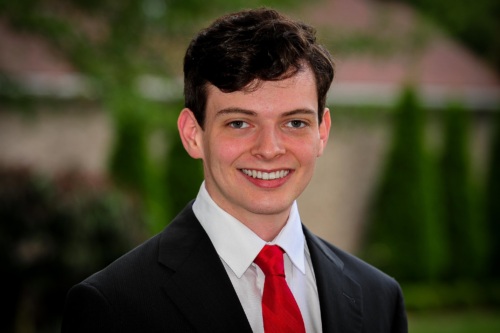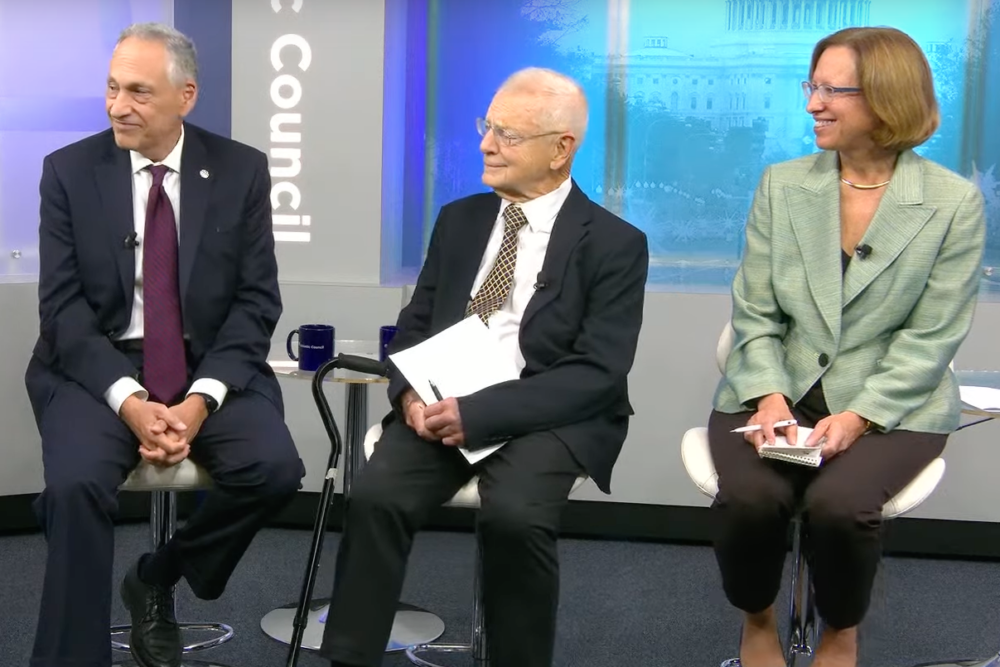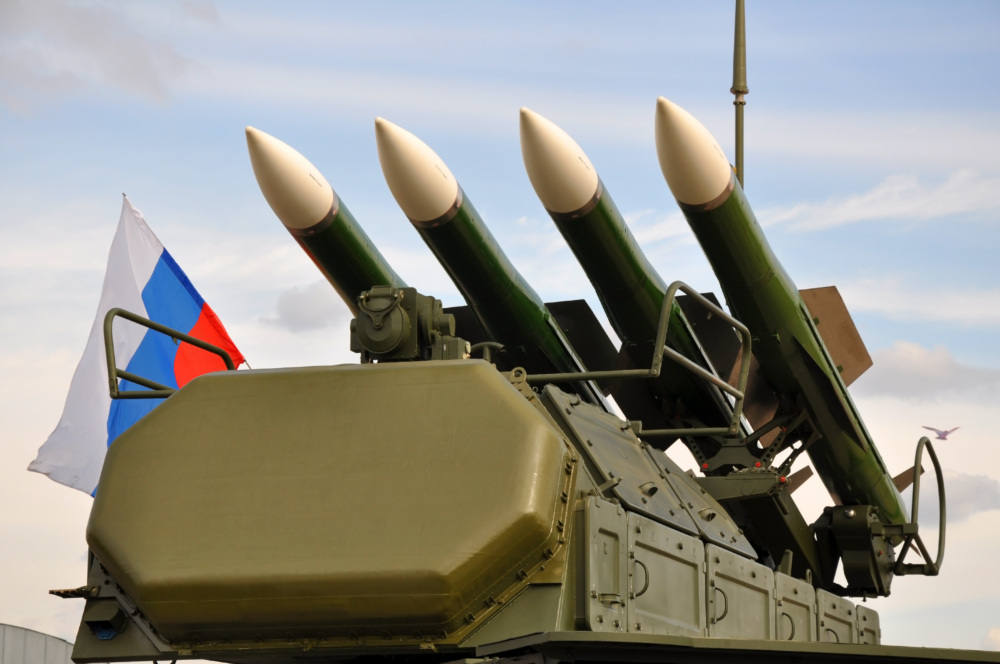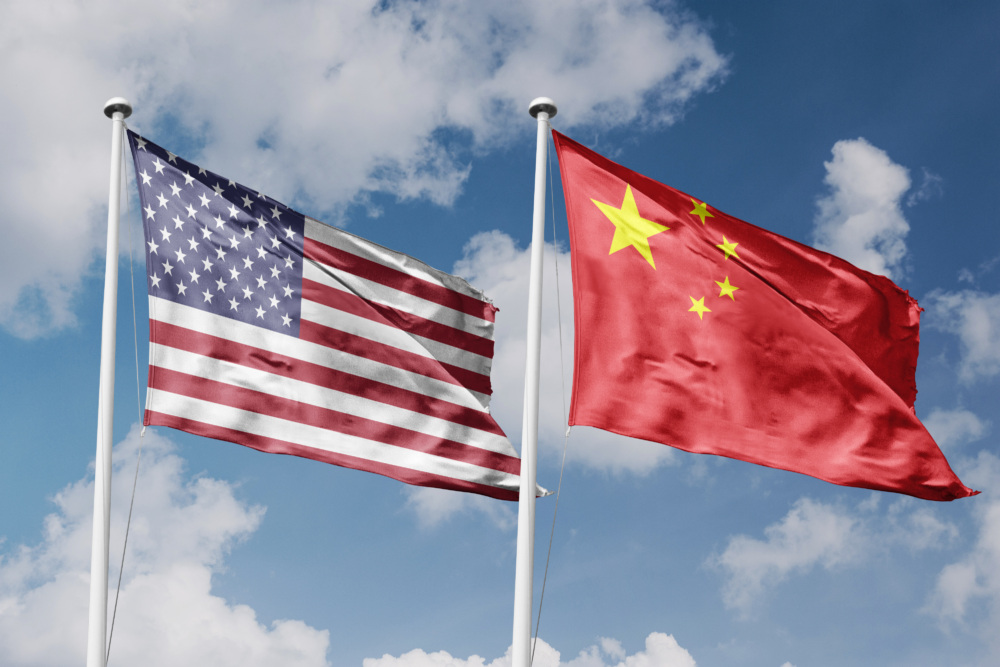
Kyle Tucker
Herbert Scoville Jr. Peace Fellow
Atomic Pulse
On February 22, 2024, Russia’s large-scale invasion of Ukraine will enter its third year. With millions of lives disrupted and the future of the global balance of power at stake, important questions remain. What is Russian President Vladimir Putin’s ultimate aim? What is Ukraine’s strategy in the year ahead, and how will Western support evolve amid key elections in the United States, the European Union, and Russia? What does the future hold for Ukraine’s survival, Putin’s grip on power, and the shape of the international order?
Longtime Russia specialist, former intelligence officer, and NTI’s inaugural William J. Perry Distinguished Fellow Rolf Mowatt-Larssen offered his candid thoughts on the state of the war and the trajectory of Putin’s Russia during an NTI seminar moderated by NTI Co-Chair and CEO Ernest J. Moniz and Global Nuclear Policy Program Vice President Lynn Rusten.
Mowatt-Larssen underscored a key personal insight from this conflict: admitting that Western experts and leaders had not fully understood Vladimir Putin and his underlying ideology. Many considered Putin, a career intelligence officer, a known entity. But his brazen invasion of Ukraine shocked the world, bringing the largest ground war to Europe since World War II and reigniting fears of nuclear escalation. Mowatt-Larssen explained, “The nuclear order is on trial here, in addition to the global order.” He attests that the war’s initial stages marked the most serious risk of nuclear escalation since the Cuban Missile Crisis. The volatility of that early, unstable period has now passed into a precipitous stalemate. Still, Russia’s unprecedented nuclear saber-rattling will continue to factor into the strategic calculations of all parties.
Despite widely held perceptions that the war stems from Putin’s grievances regarding NATO expansion and a desire to return to an idealized Soviet past, Mowatt-Larssen contends that it is more about the future of the global power structure. He explains that Putin’s system of authoritarian government is rooted in the philosophy of conservative, traditional, and religious Russian philosophers like Vladimir Solovyov. At its core, Putin’s ideal world is one of order, patriotism, and a displacement of the U.S.-led rules-based international order. This raises a disturbing implication, as Mowatt-Larssen wonders, “if Vladimir Putin’s vision for the future replaces the U.S.-led global order, what does that say about American willingness to defend what we essentially constructed after World War II?”
Ukraine’s ability to hold out against Russian forces has been remarkable but remains possible only with generous Western equipment and support. Should that support falter, Mowatt-Larssen says that Ukraine will need to make tough decisions and may adopt further insurgency tactics to keep a lower-intensity conflict alive in the occupied territories. The future of Western military aid will play an influential role in determining not just the long-term consequences of the current war, but also conflicts in Asia and the Middle East for decades to come. “The biggest implication for me after the war is over starts with what it does for other conflict zones in the world in terms of incentivizing others to follow Putin’s example,” Mowatt-Larssen added.
In the meantime, Mowatt-Larssen perceives Putin’s worldview as largely hopeful; Putin is determined to spin losses as positives and take validation from the support he has garnered in the Global South. However, Mowatt-Larssen identifies a flaw in Putin’s outlook, stemming from his alleged refusal to tolerate dissent from his inner circle as well as a fundamental difference between Western and Russian intelligence agencies: while the Western intelligence apparatus provides its leaders with objective assessments, the Russians are known to cherry-pick the information they report to avoid giving Putin bad news. Incomplete intelligence and universal acquiescence could hinder Putin’s ability to make effective decisions and slow Russia’s progress in the war. Nevertheless, Mowatt-Larssen thinks that Putin will continue shaping Russian society to conform to his patriotic, autocratic worldview—with the intention of cementing the country as a “third way” between Western and Eastern traditions.
The long-term implications of Putin’s agenda for the future of the U.S.-led global order remain unclear, but Mowatt-Larssen urges us to keep challenging Western assumptions about Putin’s values, beliefs, and personality to better see the world from his eyes. The war in Ukraine is a battle between competing ideas as much as it is over territory.
Sign up for our newsletter to get the latest on nuclear and biological threats.
Lynn Rusten, vice president of NTI’s Global Nuclear Policy Program, shares her reaction to the 2023 Strategic Posture Report during a panel event at the Atlantic Council.
Putin’s announcement is a significant blow to the last remaining strategic arms control agreement between the world’s two largest nuclear powers and to the fraying Euro-Atlantic security architecture more broadly.
NTI hosted Dr. Tong Zhao for a virtual seminar to discuss the future of U.S.-China nuclear relations and opportunities for reducing nuclear risks between both countries.


